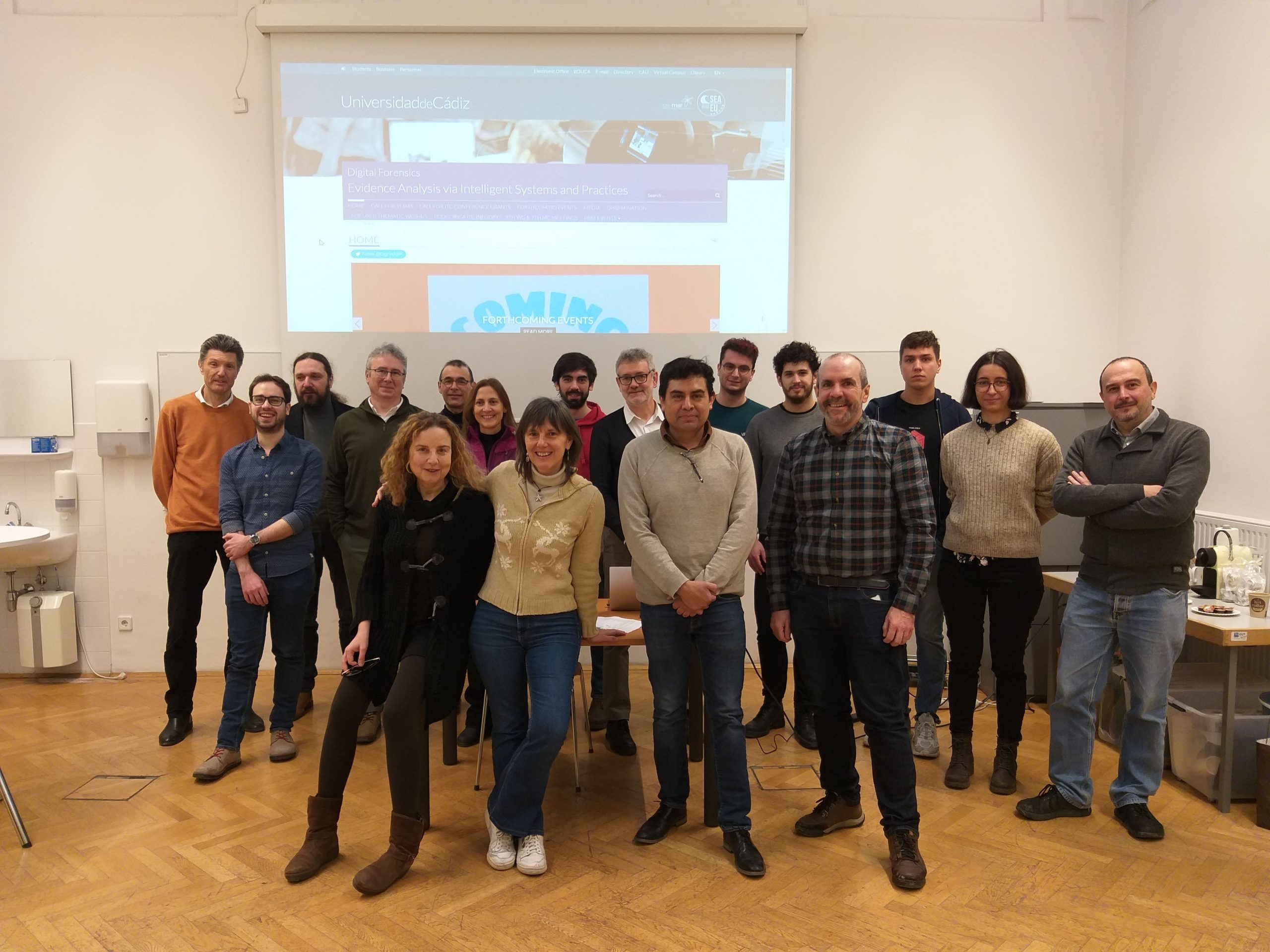Focused thematic WG3-4-5

WHAT: Focused Thematic Workig Group Meeting (FTWG3-4-5)
WHEN: 26-27 January, 2023
WHERE: Vienna (Austria)
Local organizer: Agata Ciabattoni, TU Wien
Venue: TU Wien, Technische Universität Wien.
Location: 1040 Vienna, Austria. (https://goo.gl/maps/RpD2JwUYvy34kZT86)
Description
Within and across working groups there is a need for short, intensive meetings to provide materials that will contribute to the planning of future activities and the deliverables and goals of the Grant Period and beyond. With this in mind, we propose the following activity: Focused Thematic Working Group Meetings Format: Short, 2-day, intensive working meetings comprising 4-6 participants. Although the meetings will be organized within the area of a WG, due to the nature of the Working Group topics and the close interaction between them, we may expect participants to come from more than one WG. WG leaders and co-leaders will propose a theme and list of participants for approval by the MC.
Outputs
Focused thematic working group meetings have three main objectives:
1. To prepare materials and draft deliverables that contribute to the goals of the WG for the present or coming period.
2. Suggest targets to be achieved in the coming Grant Period.
3. Propose activities that will contribute to achieving targets in the coming and future periods.
Grant Period Goal(s) it will address
O4. Foster and coordinate related R&D activities of the partners. O5. Collect and organise anonymised data extracted from real cases provided by the Digital Forensics Action partners, and devise suitable benchmarks concerning the solution of such cases. O7. Increase awareness among Digital Forensics experts of new methods and techniques and their applicability. O8. Assist Digital Forensics experts in the practical experimentation of the new methods. O9. Disseminate the Action results to stakeholders, not only Government Agencies and Institutions but also private companies working in the Digital Forensics field. O10. Implement training schemes for the parties that are potentially involved. CH. Create a network to explore the potential of the application of Mathematics, Artificial Intelligence and Automated Reasoning to Digital Forensics, and to establish synergies between these fields through the development of new theoretical frameworks, methodologies and tools to support Law Enforcement by evidence analysis and problem solving during digital investigations.
Program of the FTWG4&5
Thursday (FAV Hörsaal 2, Ground Floor)
|
Friday (Zemanek Room, Ground Floor)
|
Invited Speakers
Esra Erdem, Sabanci University, Istanbul
Short bio: Esra Erdem is a professor in computer science and engineering at Sabanci University, Istanbul. She received her Ph.D. in computer sciences at the University of Texas at Austin, and carried out postdoctoral research at the University of Toronto and Vienna University of Technology. Her research is in the area of artificial intelligence, in particular, the
mathematical foundations of knowledge representation and automated reasoning, and their applications to various domains, including robotics, bioinformatics, logistics, and economics. Dr. Erdem was a general co-chair of ICLP 2013, a program co-chair of ICLP 2019 and KR 2020, and the general chair of KR 2021. She is an associate editor for Artificial Intelligence (AIJ) and Theory and Practice of Logic Programming (TPLP), and the president of KR Inc.
Title: Explanation Generation in Applications of Answer Set Programming
Abstract: As the definition of AI changes towards building rational agents that are provably beneficial for humans, answer set programming (ASP) plays an important role in addressing the user-oriented challenges in applications that come along during this shift, such as generality, flexibility, provability, hybridity, bi-directional interactions, and explainability. In this talk, I will focus on explainability and present different methods for explanation generation in three applications of ASP: complex biomedical queries for drug discovery, multi-modal multi-agent path finding with resource consumption, and robotic plan execution monitoring.
Emmanuel Sallinger, TU Wien, Austria
Short bio: Prof. Dr. Emanuel Sallinger is leading the Knowledge Graph Lab at TU Wien, a WWTF Vienna Research Group. He is also heading the SIG Knowledge Graph of CAIML – the Center for AI and ML at TU Wien. Before that, he was directing the VADA Laboratory at the University of Oxford for many years, focused on building Knowledge Graph (KG) systems.
Together with the Central Bank of Italy and academic partners, his group is at the core of the Joint Knowledge Graph Labs, focused on financial Knowledge Graph research and solutions. This includes topics such as anti-money laundering, preventing hostile takeovers of strategic companies, understanding the economic effect of crises, and many more. He has published, together with his collaborators at the Joint KG Labs, a large number of papers in the financial and economic KG space over the last few years.
Title: Fighting Money Laundering with Datalog: Financial Crime Investigation using Knowledge Graphs
Abstract: Together with the Central Bank of Italy, we have been building AI systems to fight financial crime and detect suspicious financial and economic activities for a number of years now. Among them, money laundering is a major threat to the good functioning of financial systems. Despite huge technological investments, often with machine learning at the heart of such systems, many are still lacking scalable, explainable solutions in fighting money laundering. This is of particular importance to stakeholder such as Central Banks, Financial Intelligence Units (FIUs) and Commercial Banks. Datalog-based Knowledge Graph systems, such as the Vadalog system, allow us to effectively deploy solutions in this space.
In this talk, we showcase a number of examples in the space of financial crime and suspicious economic activities, among them:
* anti-money laundering
* hostile takeovers of strategic companies
* impact of crises on economic systems
* tracing illicit activities over cryptocurrencies
In each of them (time permitting), we will explore how logic-based Knowledge Graphs – or in combination with ML – neuro-symbolic Knowledge Graphs, help to provide effective solutions for such problems.


